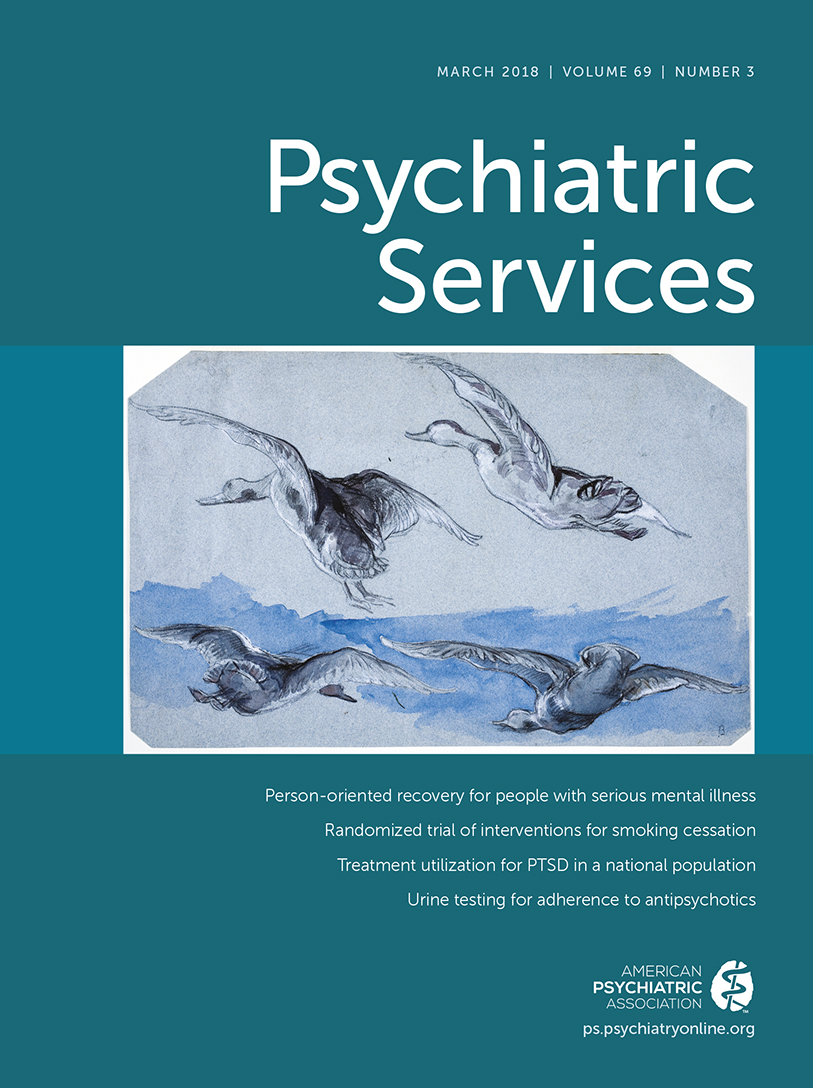Factors Influencing Receipt of Mental Health Services Among Medicaid Beneficiaries With Breast Cancer
Abstract
Objective:
This study examined associations of state-level Medicaid reimbursement and other policies and patient characteristics with receipt of mental health diagnostic and treatment services for beneficiaries with cancer.
Methods:
Data (2006–2008) from Medicaid beneficiaries with breast cancer were analyzed to examine predictors of receiving mental health diagnostic services and mental health treatment services. Independent variables included state-level Medicaid policies for reimbursements for mental health services and consultations (requests from one health care provider to another for advice regarding evaluation or management of a specific problem), required patient copayments, and requirements governing the timing of Medicaid eligibility recertification (eligibility recertification period). Generalized estimating equations were used to assess factors influencing receipt of mental health services while controlling for clustering by state.
Results:
The analysis of diagnostic services included 7,441 Medicaid beneficiaries, and the analysis of treatment services included 7,511 beneficiaries. Medicaid reimbursements for mental health services were not associated with receiving these services. However, increased Medicaid reimbursement for consultations significantly increased the likelihood of receiving mental health diagnostic and treatment services. Increased comorbidities were also associated with increased likelihood of receiving mental health services.
Conclusions:
The association of higher Medicaid reimbursements for consultations with receipt of mental health services suggests that consultation reimbursement has a “gatekeeper” effect—after a patient received an initial consultation, lower reimbursements for mental health services were not barriers to subsequent mental health care. Increased Medicaid reimbursement for consultations with a mental health professional may increase willingness of health care providers to provide mental health care services for Medicaid beneficiaries.



